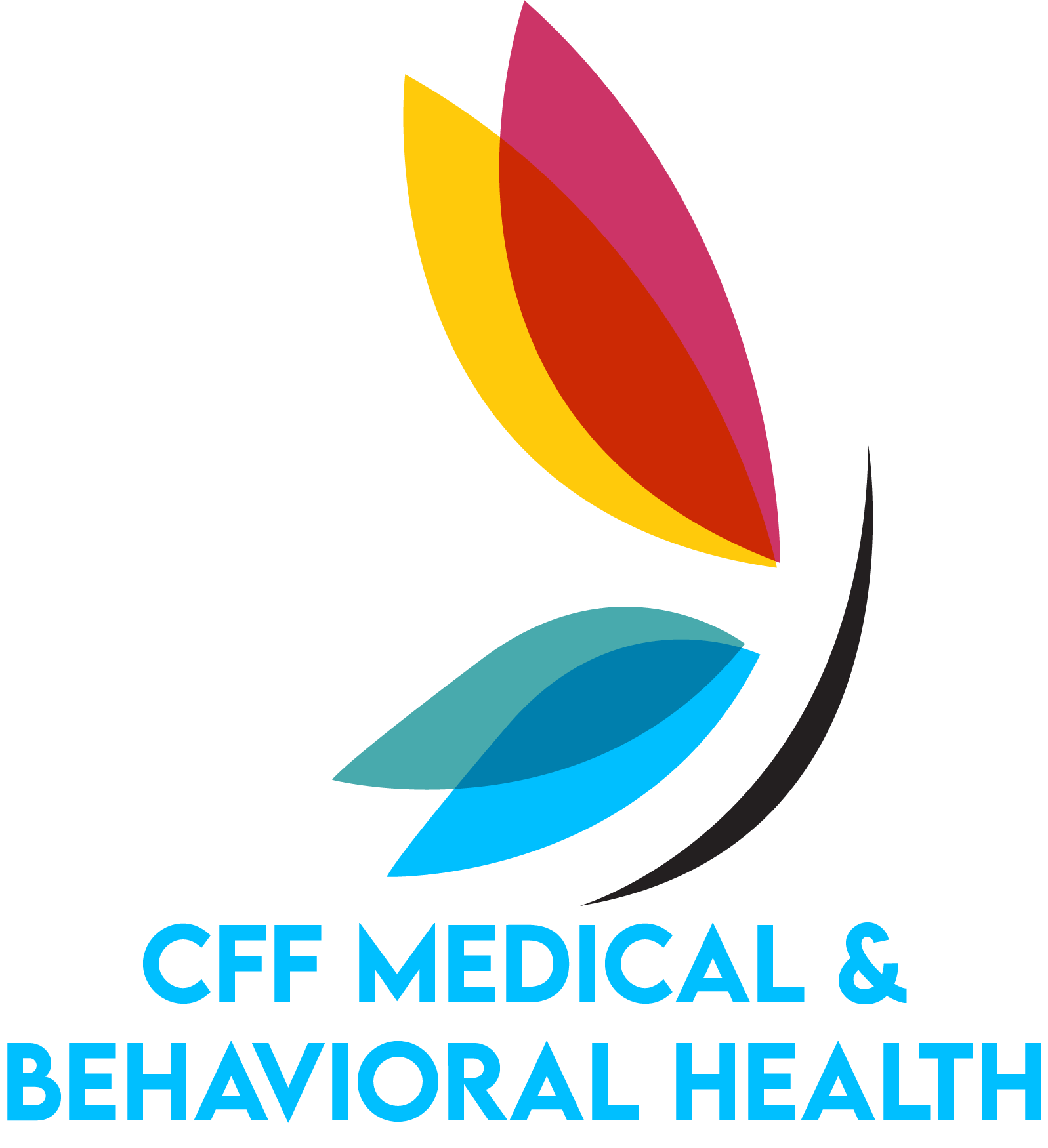Understanding Mental Health Care
Importance of Seeking Mental Health Treatment
Mental health is a crucial aspect of our overall well-being. Seeking treatment for mental health issues is essential for maintaining a balanced and fulfilling life. Untreated mental health conditions can lead to severe consequences, including impaired daily functioning, strained relationships, and a diminished quality of life. Recognizing the signs you may need professional mental health treatment is the first step towards recovery.
At CFF Medical & Behavioral Health in Columbus, OH, we understand the importance of addressing mental health concerns promptly and effectively. Our comprehensive services are designed to support individuals in their journey towards mental wellness, offering both medication and therapy options tailored to meet their unique needs.
Overview of Medication and Therapy in Mental Health Care
When it comes to mental health treatment, two primary approaches are commonly used: medication and therapy. Each method has its own set of benefits and can be used independently or in combination, depending on the individual’s needs.
Medication
Medication plays a significant role in managing various mental health conditions. It works by altering brain chemistry to help alleviate symptoms and improve mood, behavior, and cognitive function. Common types of medications used in mental health treatment include antidepressants, antipsychotics, mood stabilizers, and anxiolytics. For more detailed information on how medication works, refer to our section on how medication works in mental health treatment.
Therapy
Therapy, also known as psychotherapy or counseling, involves working with a trained mental health professional to address emotional and psychological issues. Different types of therapy approaches, such as cognitive-behavioral therapy (CBT), dialectical behavior therapy (DBT), and psychodynamic therapy, offer various techniques to help individuals understand and manage their thoughts, feelings, and behaviors. Therapy can be particularly effective in treating conditions like anxiety, depression, PTSD, and more. Learn more about the role of therapy in treating anxiety, depression, and PTSD.
| Treatment Approach | Description | Common Conditions Treated |
|---|---|---|
| Medication | Alters brain chemistry to alleviate symptoms | Depression, Bipolar Disorder, ADHD, Anxiety |
| Therapy | Addresses emotional and psychological issues through various techniques | PTSD, Anxiety, Depression, Borderline Personality Disorder |
Understanding the differences between medication and therapy, and how they can complement each other, is crucial for making informed decisions about mental health care. At CFF Medical & Behavioral Health, we are committed to helping you navigate these options and develop a personalized treatment plan that best suits your needs. For guidance on choosing the right mental health provider, visit our article on how to choose the right mental health provider for your needs.
Medication for Mental Health
How Medication Works in Mental Health Treatment
Medication plays a crucial role in the treatment of various mental health conditions. These medications work by altering the chemical balance in the brain, which can help alleviate symptoms and improve overall mental well-being. The primary goal of medication is to manage symptoms, making it easier for individuals to function in their daily lives.
Medications for mental health conditions typically target neurotransmitters, which are chemicals in the brain that transmit signals between nerve cells. By adjusting the levels of these neurotransmitters, medications can help regulate mood, reduce anxiety, and improve focus and concentration. It’s important to note that medication is not a cure for mental health conditions but rather a tool to help manage symptoms.
Common Types of Medications Used
There are several types of medications commonly used in mental health treatment. Each type targets different symptoms and conditions, and the choice of medication depends on the individual’s specific needs and diagnosis. Here are some of the most common types of medications used in mental health care:
| Medication Type | Common Uses | Examples of Conditions Treated |
|---|---|---|
| Antidepressants | Alleviate symptoms of depression and anxiety | Depression, Anxiety Disorders, PTSD |
| Antipsychotics | Manage symptoms of psychosis | Schizophrenia, Bipolar Disorder |
| Mood Stabilizers | Regulate mood swings | Bipolar Disorder |
| Anxiolytics | Reduce anxiety | Generalized Anxiety Disorder, Panic Disorder |
| Stimulants | Improve focus and attention | ADHD |
- Antidepressants: These medications are primarily used to treat depression and anxiety disorders. They work by increasing the levels of certain neurotransmitters, such as serotonin and norepinephrine, which can help improve mood and reduce anxiety. For more information on how therapy can complement antidepressant treatment, visit our article on the role of therapy in treating anxiety depression and ptsd.
- Antipsychotics: These medications are used to manage symptoms of psychosis, such as hallucinations and delusions. They work by blocking the effects of dopamine, a neurotransmitter that is often elevated in individuals with psychotic disorders. Antipsychotics are commonly used in the treatment of schizophrenia and bipolar disorder. Learn more about managing mood swings in our article on bipolar disorder treatment: managing mood swings and stability.
- Mood Stabilizers: These medications help regulate mood swings in individuals with bipolar disorder. They work by balancing the levels of neurotransmitters in the brain, which can help prevent extreme highs (mania) and lows (depression). For additional treatment options for bipolar disorder, visit our article on bipolar disorder treatment: managing mood swings and stability.
- Anxiolytics: These medications are used to reduce anxiety and are often prescribed for individuals with generalized anxiety disorder or panic disorder. They work by enhancing the effects of gamma-aminobutyric acid (GABA), a neurotransmitter that has a calming effect on the brain. For more on managing anxiety, see our article on how cognitive behavioral therapy (cbt) helps with anxiety & depression.
- Stimulants: These medications are commonly used to treat attention-deficit/hyperactivity disorder (ADHD). They work by increasing the levels of dopamine and norepinephrine, which can help improve focus and attention. For more information on ADHD treatment options, visit our article on managing adhd in adults: treatment options that work.
Understanding the different types of medications and how they work can help individuals make informed decisions about their mental health treatment. It’s important to consult with a mental health professional to determine the most appropriate medication and dosage for your specific needs. For more guidance on choosing the right mental health provider, visit our article on how to choose the right mental health provider for your needs.
Therapy for Mental Health
Different Types of Therapy Approaches
Therapy is a cornerstone of mental health treatment, offering various approaches to address different needs. Here are some common types of therapy:
- Cognitive Behavioral Therapy (CBT): This approach focuses on identifying and changing negative thought patterns and behaviors. It is effective for conditions like anxiety and depression. Learn more about how CBT helps with anxiety and depression.
- Dialectical Behavior Therapy (DBT): DBT combines cognitive-behavioral techniques with mindfulness strategies. It is particularly useful for treating borderline personality disorder. For more information, visit our article on understanding borderline personality disorder: symptoms & treatment.
- Psychodynamic Therapy: This approach explores unconscious processes and past experiences to understand current behavior. It is often used for a wide range of mental health issues.
- Humanistic Therapy: This type of therapy emphasizes personal growth and self-actualization. It focuses on the individual’s capacity for self-healing and personal development.
- Holistic Therapy: This approach integrates various therapeutic techniques and considers the whole person, including physical, emotional, and spiritual aspects. Discover more about holistic approaches to mental health.
- Exposure Therapy: Often used for PTSD and phobias, this therapy involves gradual exposure to the feared object or context without any danger, to help overcome anxiety. Read about the differences between PTSD and trauma.
Benefits of Therapy in Mental Health Treatment
Therapy offers numerous benefits for individuals seeking mental health treatment. Here are some key advantages:
- Personalized Treatment: Therapy is tailored to the individual’s specific needs, making it a highly personalized form of treatment. This customization can lead to more effective outcomes.
- Skill Development: Therapy helps individuals develop coping strategies and problem-solving skills. These skills are essential for managing symptoms and improving overall well-being.
- Long-term Benefits: Unlike medication, which may provide temporary relief, therapy aims to address the root causes of mental health issues. This can lead to long-lasting improvements.
- Improved Relationships: Therapy can enhance communication skills and emotional regulation, leading to better relationships with family, friends, and colleagues.
- Empowerment: Therapy empowers individuals by giving them the tools and confidence to manage their mental health independently.
- Holistic Approach: Many therapy approaches consider the whole person, addressing physical, emotional, and social aspects of well-being. This comprehensive approach can lead to more balanced and sustainable mental health.
| Therapy Type | Key Benefits | Common Uses |
|---|---|---|
| Cognitive Behavioral Therapy (CBT) | Changes negative thought patterns | Anxiety, Depression |
| Dialectical Behavior Therapy (DBT) | Combines CBT with mindfulness | Borderline Personality Disorder |
| Psychodynamic Therapy | Explores unconscious processes | Various mental health issues |
| Humanistic Therapy | Focuses on personal growth | Self-actualization |
| Holistic Therapy | Integrates multiple techniques | Overall well-being |
| Exposure Therapy | Gradual exposure to fears | PTSD, Phobias |
Therapy is a vital component of mental health care, offering diverse approaches to meet individual needs. Whether used alone or in combination with medication, therapy can provide significant benefits for those seeking to improve their mental health. For more insights on therapy’s role in treating specific conditions, explore our article on the role of therapy in treating anxiety, depression, and PTSD.
Factors to Consider
When deciding between medication and therapy for mental health treatment, several factors need to be considered. These factors can help determine the most effective approach for each individual.
Individual Needs and Preferences
Every person’s mental health journey is unique, and their treatment should reflect that. Individual needs and preferences play a significant role in choosing between medication and therapy. Some individuals may respond better to medication, while others may find therapy more beneficial.
Factors to consider include:
- Severity of Symptoms: Severe symptoms may require medication to stabilize the individual before therapy can be effective.
- Type of Mental Health Condition: Certain conditions, such as bipolar disorder or ADHD, may respond better to medication.
- Personal Comfort: Some individuals may feel more comfortable talking through their issues in therapy, while others may prefer the convenience of medication.
- Past Treatment Experiences: Previous experiences with medication or therapy can influence current treatment choices.
| Factor | Medication | Therapy |
|---|---|---|
| Severity of Symptoms | Effective for severe symptoms | Effective for mild to moderate symptoms |
| Type of Condition | Suitable for conditions like bipolar disorder, ADHD | Suitable for conditions like anxiety, depression |
| Personal Comfort | Preferred by those who want quick relief | Preferred by those who want to explore underlying issues |
| Past Experiences | Influences current choice | Influences current choice |
For more information on recognizing when professional help is needed, visit our article on signs you may need professional mental health treatment.
Combination of Medication and Therapy
In many cases, a combination of medication and therapy can provide the most comprehensive treatment. This approach addresses both the biological and psychological aspects of mental health conditions.
Benefits of combining medication and therapy include:
- Holistic Treatment: Medication can manage symptoms, while therapy can address underlying issues and teach coping strategies.
- Enhanced Effectiveness: Combining both methods can enhance the overall effectiveness of treatment.
- Personalized Care: Allows for a more tailored approach to meet individual needs.
| Benefit | Description |
|---|---|
| Holistic Treatment | Addresses both biological and psychological aspects |
| Enhanced Effectiveness | Improves overall treatment outcomes |
| Personalized Care | Tailors treatment to individual needs |
Consulting with mental health professionals is crucial in determining the best treatment plan. They can provide guidance on whether a combination approach is suitable. For more insights on personalizing your treatment plan, visit our article on how to choose the right mental health provider for your needs.
Understanding the role of therapy in treating various conditions can also be beneficial. For example, cognitive behavioral therapy (CBT) is effective for anxiety and depression, while other therapies may be more suitable for different conditions. For more information, explore our article on the role of therapy in treating anxiety depression and ptsd.
By considering individual needs and the potential benefits of combining medication and therapy, individuals can make informed decisions about their mental health treatment.
Making Informed Decisions
When it comes to choosing between medication and therapy for mental health treatment, making informed decisions is crucial. Understanding the options and consulting with professionals can help tailor a treatment plan that best suits individual needs.
Consulting with Mental Health Professionals
Consulting with mental health professionals is a vital step in the decision-making process. These experts can provide insights into the benefits and limitations of both medication and therapy. They can also help determine the most appropriate treatment based on the individual’s specific condition, symptoms, and overall health.
Mental health professionals, such as psychiatrists, psychologists, and licensed therapists, have the expertise to assess the severity of mental health issues and recommend suitable interventions. They can also monitor progress and make necessary adjustments to the treatment plan.
For those unsure about when to seek professional help, our article on signs you may need professional mental health treatment can provide valuable guidance.
Personalizing Your Treatment Plan
Personalizing a treatment plan involves considering various factors, including individual preferences, lifestyle, and the nature of the mental health condition. A combination of medication and therapy is often recommended for comprehensive care.
| Factor | Medication | Therapy |
|---|---|---|
| Severity of Symptoms | Effective for severe symptoms | Effective for mild to moderate symptoms |
| Side Effects | Possible physical side effects | Minimal physical side effects |
| Long-term Management | May require ongoing use | Can provide long-term coping strategies |
| Personal Preference | May prefer quick symptom relief | May prefer talking and behavioral strategies |
Combining medication and therapy can offer a balanced approach, addressing both the biological and psychological aspects of mental health. For example, medication can help stabilize mood swings in bipolar disorder, while therapy can provide strategies for managing triggers and stress. Learn more about this in our article on bipolar disorder treatment: managing mood swings and stability.
It’s essential to have open communication with mental health professionals to ensure the treatment plan aligns with personal goals and preferences. Regular evaluations and adjustments can help maintain the effectiveness of the treatment.
For those interested in exploring alternative therapies, our article on holistic approaches to mental health: alternative therapies that work offers additional options that can complement traditional treatments.
By consulting with professionals and personalizing the treatment plan, individuals can make informed decisions that enhance their mental health and well-being.








